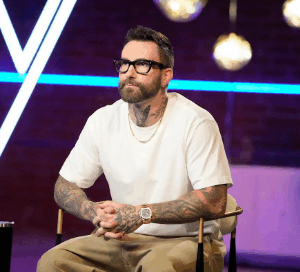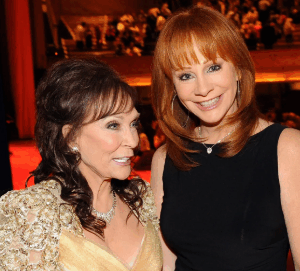
Image: Getty Images
Alyssa Farah Griffin caused a stir when she suddenly admitted she felt “afraid” of men. Could this be a sign of a shift in her s3xu@l orientation?
Recently, Alyssa Farah Griffin, co-host of the hit daytime talk show *The View*, captivated audiences with a stunning admission about her feelings toward men. During an emotional segment, she expressed that she felt “afraid” of men, sparking debates about societal norms and personal safety. This bold statement raises questions not only about her personal experiences but also whether it indicates a shift in her s3xu@l orientation. The discussion around her admission is layered, reflecting changing attitudes towards masculinity and the safety of women in today’s world.

Image: Getty Images
The Context of Fear Towards Men
In an environment where gender dynamics are shifting rapidly, concerns regarding safety and trust among men have become a focal point in public discourse. Alyssa’s candid expression of fear resonates with many women who have had their own encounters with threatening behavior or microaggressions. When she articulated her anxiety, it initiated a broader conversation on the ways in which women navigate their relationships with men in various settings, including professional and social circles.
The co-hosts of *The View* engaged in a vigorous discussion about the societal pressures and cultural contexts that foster such fears. Alyssa’s fear was not presented in isolation; rather, it echoed the experiences of countless women who struggle to balance their personal and professional lives while being wary of men’s intentions. This societal backdrop adds weight to her statement, suggesting that her fear reflects a more significant issue within contemporary gender relations.

Image: Getty Images
Shifting Perspectives on Gender Dynamics
As discussions surrounding gender roles and masculinity evolve, many individuals, including Alyssa, are beginning to reevaluate their relationships with men. The concept of traditional masculinity is being challenged by a growing number of voices advocating for a more understanding and empathetic approach. Alyssa’s experience can be seen as a signal that many women may be reconsidering the qualities they value in their male counterparts.
The implications of this shift are profound. If women begin to view men through a lens of caution, it may lead to a change in attraction or even a questioning of past norms regarding s3xu@l orientation. Alyssa’s perspective highlights how vital it is to establish healthy boundaries and ensure safety in interactions, overshadowing the previous notions of male dominance that many have come to reject.

Image: Getty Images
Possible Signals of a Shift in S3xu@l Orientation
While Alyssa Farah Griffin’s admission may simply stem from a place of fear rooted in personal experiences, it undeniably stirs curiosity about her s3xu@l orientation. Could this expression of fear indicate a deeper reevaluation of who she finds attractive or her comfort level with men in general? Such a shift isn’t uncommon as people navigate the complex terrain of sexuality and attraction, especially influenced by societal changes.
As the conversation around gender evolves, so too may the perspectives individuals have about their s3xu@l identities. For Alyssa, her statement may invite her to reassess her past relationships and the qualities she seeks in potential partners. Such introspection is essential, particularly as many women are striving to prioritize their safety and emotional health over societal expectations of romance and attraction.
It’s crucial to acknowledge that feelings of fear or apprehension do not automatically dictate one’s s3xu@l orientation. However, they can foster a deeper understanding of oneself and what one desires in relationships. Alyssa’s candidness may inspire others to explore their own feelings and come to terms with how past experiences shape their present views on attraction.
In a society that often emphasizes traditional norms, Alyssa’s reflection provides a refreshing opportunity for dialogue around safety, attraction, and personal identity. As more women voice their concerns about men and their experiences, it fosters a community of support that prioritizes well-being and redefines what healthy relationships look like.

Image: Getty Images
With public figures like Alyssa willing to share their vulnerabilities, a broader cultural shift may begin to unfold. As we embrace these discussions, it becomes increasingly critical for everyone to engage thoughtfully about what it means to feel safe and valued in relationships.
In conclusion, Alyssa Farah Griffin’s admission is more than a personal reflection; it’s a catalyst for profound dialogue about gender dynamics and s3xu@l orientation. As society continues to evolve, embracing these conversations can lead to healthier and more respectful interactions among individuals. For those seeking to understand their feelings or navigate similar experiences, remember that open discussion and self-exploration can pave the way for healthier relationships.
Curious about what this shift means for your own perspective on gender dynamics? Join the conversation and share your thoughts on relationships and attraction!





